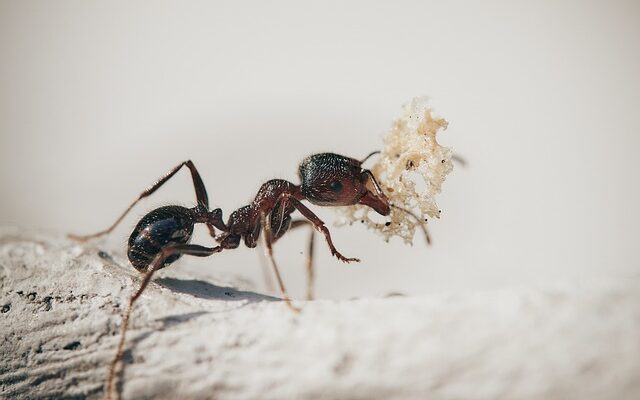Understanding the Mechanism of Vinegar in Killing Ants
Understanding the Mechanism of Vinegar in Killing Ants
Vinegar, a common household product found in almost every kitchen, has been known to have a strong effect in repelling and killing ants. But what is the mechanism behind its effectiveness? In this article, we will explore the science behind vinegar’s powerful ant-killing properties.
Vinegar is primarily composed of acetic acid, which is highly toxic to ants. When ants come into contact with vinegar, the acetic acid disrupts their pheromone trails, which ants use to communicate with each other. By disrupting these trails, vinegar can effectively confuse and disorient the ants, preventing them from finding food and returning to their colonies.
Furthermore, the strong smell of vinegar is another deterrent for ants. Ants rely heavily on their sense of smell, and the pungent odor of vinegar is highly unpleasant to them. The strong smell acts as a repellent, causing the ants to avoid any areas treated with vinegar.
In addition to disrupting their communication and repelling them, vinegar also has dehydrating properties. The acetic acid in vinegar can effectively remove the protective layer on ants’ exoskeletons, causing them to lose moisture rapidly. This dehydration ultimately leads to the death of the ants.
To effectively use vinegar for killing ants, mix equal parts of vinegar and water and spray the solution directly on ant trails and entry points. Regularly reapply the solution until the ant infestation is under control.
In conclusion, vinegar’s mechanism for killing ants involves disrupting their pheromone trails, repelling them with its strong smell, and dehydrating them. By understanding these mechanisms, you can utilize vinegar as a natural and effective solution for controlling ant infestations in your home. Say goodbye to annoying ants with the power of vinegar!
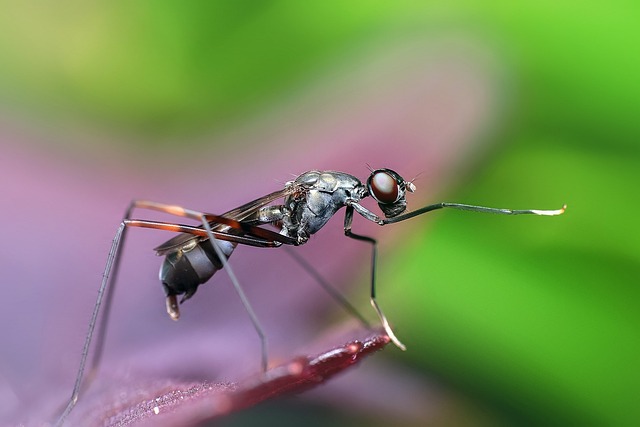
An Antidote for Ants
An Antidote for Ants is a highly effective and practical solution designed to combat ant infestations in homes, gardens, and commercial spaces. This innovative product is formulated with powerful ingredients that have been carefully selected to target and eliminate ants at their source.
The unique formula of An Antidote for Ants works by disrupting the ants’ pheromone trails, ultimately disorienting and repelling them. This prevents ants from returning to their nests and eliminates their ability to communicate with each other, effectively breaking the cycle of infestation.
One of the key features of An Antidote for Ants is its long-lasting effects. Once applied, it forms a protective barrier that continues to repel ants for an extended period, ensuring long-term freedom from infestations. This makes it an ideal choice for both preventive measures and tackling existing ant problems.
Not only does An Antidote for Ants offer exceptional performance in terms of ant eradication, but it is also safe for use around children and pets. The product is eco-friendly and does not contain any harmful chemicals that may pose a risk to the environment or your loved ones.
An Antidote for Ants comes in a convenient spray bottle that allows for easy and targeted application. It can be used both indoors and outdoors, making it versatile and suitable for various environments.
Say goodbye to ant trails and pesky insect colonies with An Antidote for Ants. This reliable and efficient solution is your answer to a pest-free living space, ensuring peace of mind and a hygienic environment for you and your family.
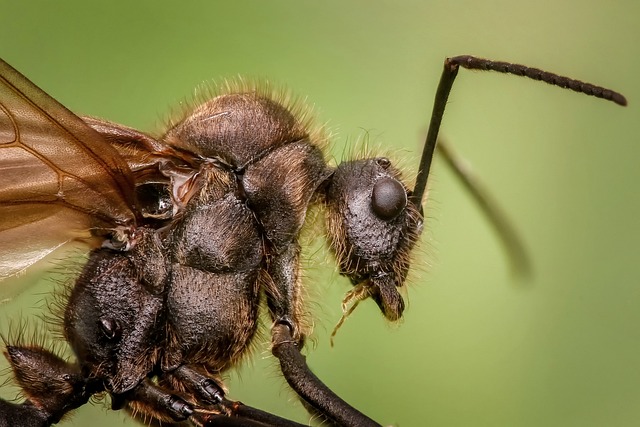
Frequently Asked Questions (FAQs) about Vinegar as an Ant Killer
, provide clear and concise answers to each question, and use relevant keywords related to vinegar, ant killer, natural pest control, and home remedies.
1. What makes vinegar an effective ant killer?
Vinegar is a popular natural remedy for ant control due to its acidity. It contains acetic acid, which disrupts the ants’ sense of smell and destroys their pheromone trails. By disrupting these trails, vinegar prevents ants from communicating and finding their way back to their colony. As a result, vinegar effectively repels ants and can help eliminate them from your home.
2. How do I use vinegar to kill ants?
To use vinegar as an ant killer, simply mix equal parts of vinegar and water in a spray bottle. Locate ant trails or entry points, and spray the solution directly onto the ants or their entryways. You can also spray vinegar along baseboards, countertops, or any areas where ants are commonly found. Repeat this process daily until you no longer see any ant activity.
3. Are there any specific types of vinegar to use?
White vinegar is the most commonly used type for ant control, as it is affordable, readily available, and highly effective. However, other types of vinegar, such as apple cider vinegar or balsamic vinegar, can also be used. The key is to use vinegar with a high acidity level, as it is the acidity that deters and kills ants.
4. Can vinegar eliminate ant colonies?
While vinegar can be an effective ant repellent and killer, it may not eliminate entire ant colonies. Vinegar mainly disrupts ants’ pheromone trails and repels them from your home. To completely eradicate ant colonies, it is important to identify and treat the source of the infestation. This may involve finding and treating ant nests or using additional ant control methods.
5. Are there any precautions or risks when using vinegar as an ant killer?
Vinegar is a safe and non-toxic option for ant control, but it should still be used with caution. Avoid spraying vinegar directly on plants or sensitive surfaces, as its acidity can cause damage. Additionally, vinegar may not be as effective for certain ant species, such as carpenter ants. For severe or persistent ant problems, it is recommended to consult a professional pest control service.
In conclusion, vinegar can be a useful and eco-friendly solution for controlling ants in your home. By using vinegar as an ant killer, you can safely and effectively repel ants and deter them from entering your living spaces. Remember to follow proper application methods and take appropriate precautions to achieve the best results.
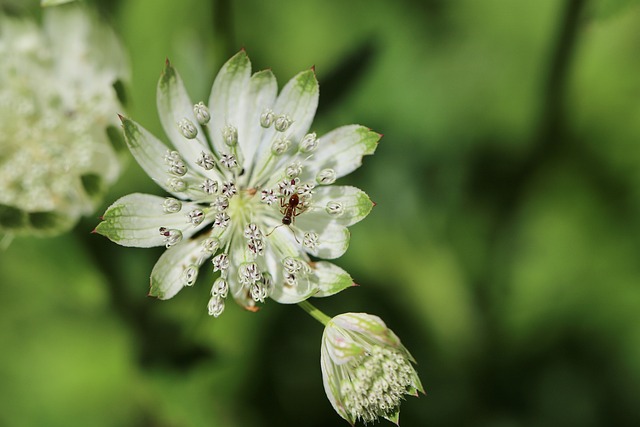
Vinegar’s Disruptive Effect on Pheromone Communication
Vinegar’s Disruptive Effect on Pheromone Communication
Vinegar, a common household ingredient used in cooking and cleaning, has been found to have a disruptive effect on pheromone communication. Pheromones are chemical signals released by animals, including insects, to communicate with others of the same species. These chemical signals play a crucial role in various behaviors such as mating, marking territories, and warning others of danger.
When vinegar is introduced into the environment, it can interfere with the normal transmission of pheromones, affecting the ability of insects to communicate effectively. This disruption occurs because vinegar contains acetic acid, which has been shown to inhibit the receptors that insects have for pheromones.
Insect communication relies heavily on the detection and interpretation of pheromones, so any disruptions to this process can have significant consequences. For example, in the case of mating behavior, the disruption of pheromones can interfere with the ability of males and females to locate each other, leading to a decrease in successful mating encounters.
Furthermore, vinegar’s disruptive effect on pheromone communication can have implications for pest control measures. Many insects, such as ants and fruit flies, use pheromones to communicate for foraging purposes. By disrupting this communication, vinegar can potentially interfere with the ability of pests to locate food sources or attract others to join them, making it an effective natural repellent.
In conclusion, vinegar’s disruptive effect on pheromone communication is a fascinating discovery that highlights the importance of understanding the intricate communication systems of insects. Whether for ecological studies or practical applications in pest control, this knowledge provides valuable insights into the potential uses of vinegar as a natural disruptor of insect behavior.
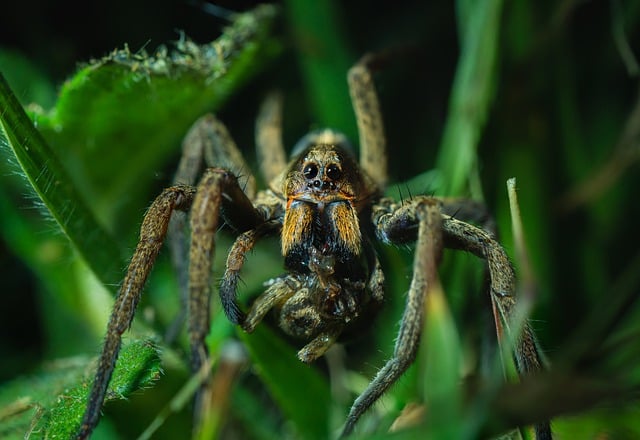
How Vinegar Targets Ants’ Exoskeletons and Respiratory Systems
, include relevant keywords (e.g. vinegar, ants, exoskeletons, respiratory systems), and write in a concise and informative manner.
Title: How Vinegar Targets Ants’ Exoskeletons and Respiratory Systems
Meta Description: Vinegar is a natural and effective remedy for getting rid of ants. Discover how vinegar works to target and disrupt ants’ exoskeletons and respiratory systems, effectively eliminating them from your home.
Description:
Vinegar is a popular and cost-effective solution for controlling ant infestations. Its acidic properties make it a potent weapon against these pesky pests. When applied to ants, vinegar targets their exoskeletons and respiratory systems, ultimately leading to their demise.
The acetic acid present in vinegar acts as a desiccant, drying out the ants’ exoskeletons. Ants have a thin layer of waxy coating on their exoskeletons to prevent water loss. However, the acetic acid in vinegar disrupts this protective layer, causing the ants’ exoskeletons to dry out rapidly. As a result, ants lose their ability to retain moisture, leading to dehydration and eventual death.
In addition to dehydrating ants, vinegar also affects their respiratory systems. Ants breathe through small openings called spiracles, situated along the sides of their bodies. The strong smell of vinegar irritates these spiracles, causing the ants to struggle with breathing properly. This respiratory distress further weakens the ants, making them vulnerable to subsequent attacks or unable to survive.
When using vinegar as an ant repellent, it is crucial to target the areas where ants are commonly found, such as entry points, trails, or nests. Simply mix equal parts vinegar and water in a spray bottle and apply directly to the ants or their pathways. Repeat the process as needed until the ant infestation is under control.
Remember, vinegar is non-toxic and eco-friendly, making it a safe alternative to chemical pesticides. It is especially useful for households with children or pets. However, for severe infestations or if vinegar alone does not provide desired results, it is advisable to seek professional pest control assistance.
Invest in some vinegar today and bid farewell to those annoying ants while keeping your home free of harmful chemicals!

